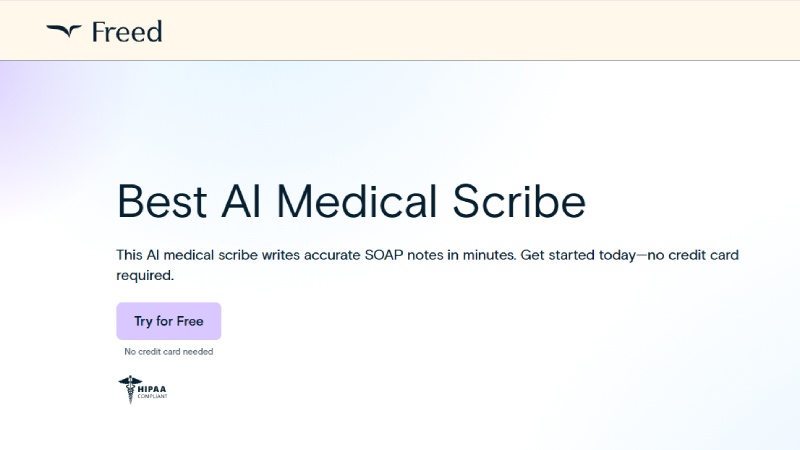
For physicians, patient relationships shouldn’t be overshadowed by an avalanche of tasks— prescriptions to send, lab orders to enter, referrals to set up, prior authorizations to complete, and, of course, charting.
The stark reality is that healthcare providers are spending more time charting than actually engaging with patients
Many clinicians report spending an additional 10-15 hours per week outside their standard 40-hour workweek just catching up on medical documentation.
The Trouble with Medical Documentation
What should be a fulfilling profession has become a grueling exercise in administrative gymnastics.This documentation burden doesn’t just impact professional productivity—it dramatically affects personal life and well-being:
- Clinicians frequently work late nights and weekends
- Personal relationships suffer due to constant work overflow
- Mental and physical health deteriorates from chronic stress
- Work-life balance becomes nearly impossible to maintain
Introducing AI Medical Scribes
The emergence of AI medical scribes represents a transformative solution to overwhelming documentation.
These intelligent virtual assistants do more than simple transcription—they learn and adapt to a clinician’s unique documentation style while capturing the nuanced details of patient encounters.
How AI Scribes Work
Unlike traditional documentation methods, AI medical scribes:
- Use advanced speech recognition to capture patient encounter details
- Rapidly generate SOAP (Subjective, Objective, Assessment, Plan) notes
- Integrate seamlessly with electronic medical record systems
- Require minimal manual intervention from healthcare providers
The Impact of AI Scribes
The American Medical Association suggests that AI Scribes can save clinicians approximately one hour per day. Some other impactful benefits are:
- Improved Patient Interaction: Clinicians can maintain eye contact and provide more empathetic care
- Reduced Administrative Burden: Significant time savings on documentation
- Enhanced Accuracy: Machine learning capabilities improve note precision 4. HIPAA Compliance: Robust security and privacy protections
- Cost-Effective: Affordable solutions like Freed offer significant value
Looking Forward: The Future of Healthcare Documentation
AI medical scribes are more than a technological novelty—they represent a fundamental reimagining of healthcare workflows.
By alleviating administrative pressures, these tools enable clinicians to rediscover the core mission of their profession: delivering compassionate, focused patient care.
These clinical documentation AI tools promise not just efficiency, but a pathway to rekindling the joy and human connection at the heart of healthcare.
Reclaiming the Joy of Medicine
The integration of AI medical scribes is more than a technical advancement—it’s a step toward restoring the soul of medicine. These tools free clinicians from the relentless grind of administrative work, allowing them to invest their time and energy where it matters most: patient care. Physicians can once again focus on building meaningful relationships with their patients, asking thoughtful questions, and offering empathetic listening that define great healthcare. With the reduced need for late-night charting sessions and weekend catch-ups, clinicians can also reclaim time for themselves and their families, leading to better overall well-being and satisfaction in both personal and professional domains.
As AI medical scribes evolve, the possibilities for their impact are endless. Beyond transcribing patient encounters, future advancements may include leveraging advanced analytics to detect patterns, highlight potential red flags in patient health, and provide clinicians with predictive insights to improve care. Integration with telemedicine platforms, remote monitoring tools, and even real-time translation services could further extend the reach and accessibility of quality healthcare. Additionally, AI scribes could enhance follow-up care by generating automated patient summaries or post-visit instructions, reducing the risk of miscommunication and ensuring patients leave every appointment with a clear understanding of their next steps.
However, the true promise of AI scribes lies in their ability to restore balance to the healthcare profession. By alleviating the administrative burden that has long overshadowed patient care, these tools enable clinicians to rediscover the purpose and passion that drew them to medicine in the first place. Reduced burnout, improved work-life balance, and a renewed focus on delivering exceptional care are just the beginning. The journey toward reimagining healthcare documentation is still unfolding, but one thing is clear: AI medical scribes are paving the way for a more human-centered future in medicine—where technology complements compassion, not competes with it. This shift promises to reshape healthcare into a field that is not only efficient but also deeply fulfilling for providers and truly centered around the needs of patients.
The future of medical practice is here, and it speaks directly to the needs of healthcare providers.